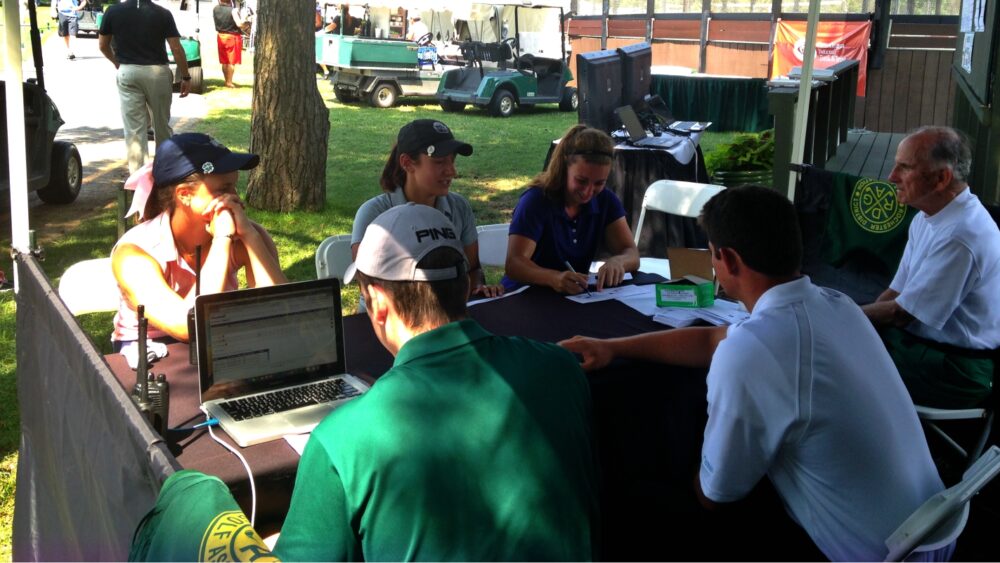
LIBERTY CORNER, N.J. (Jan. 10, 2018) – Fifty-nine regional golf associations have entered into a new relationship with the United States Golf Association to enhance the golfer experience at the state and local levels in the United States.
These Allied Golf Associations (AGAs), supported by the USGA’s five existing regional affairs offices, will administer the USGA Handicap and Course Rating Systems within defined geographic areas across the country. In addition, they will serve as the community’s primary resource for USGA services such as championship qualifiers, governance, golf facility support and programs that help grow and improve the long-term health of the game.
CLICK HERE for the complete list of official USGA Allied Golf Associations
“Regional golf associations are the lifeblood of the golf community and the USGA,” said Mike Davis, USGA CEO. “We felt that now was the best time to formalize this new alliance, in the spirit of working together on grassroots programs, improving how we serve golfers and providing a healthy foundation from which the entire golf community can grow.”
Newly recognized AGAs were identified through a nearly year-long discovery process that encouraged collaboration among existing golf organizations within each state and region, sharing best practices and leveraging programs that have made a positive impact.
The resulting relationship will enable AGAs to provide a variety of competitive playing opportunities that engage more golfers of all levels within their region. The AGAs will also serve as local experts for education on topics such as modernizing golf’s rules, the new World Handicap System and related governance functions.
Each AGA will also have direct access to USGA research, funding for programs such as USGA P.J. Boatwright Internships, data and technology, additional expertise to better serve the health of golf facilities and support of national grow-the-game initiatives including PLAY9.
One of the alliance’s most significant benefits to golfers will be the centralized computation of USGA Handicap Indexes in the United States to improve efficiency, consistency and governance oversight. The move to a more modernized, digital platform will also empower Allied Golf Associations to more deeply engage golfers within their community through rich, real-time player data.
An AGA Council has been formed to share information, help ongoing service delivery and provide continuous feedback directly to the USGA to better serve golfers and golf clubs. The 12-member council consists of AGA executive directors who will represent regions and markets throughout the United States.
The alliance marks the latest step by the USGA to more deeply engage the local and regional golf community. It complements the USGA’s existing presence in all five major golf regions in the United States – Northeast, Great Lakes, Southeast, Central and West – where dedicated Regional Affairs directors currently serve in residence.
In addition to its five Regional Affairs directors, the USGA also supports golf clubs and facilities through the USGA Green Section, providing agronomic expertise through 13 regional offices.
About the USGA
The USGA celebrates, serves and advances the game of golf. Founded in 1894, we conduct many of golf’s premier professional and amateur championships, including the U.S. Open and U.S. Women’s Open. With The R&A, we govern the sport via a global set of playing, equipment and amateur status rules. Our operating jurisdiction for these governance functions is the United States, its territories and Mexico. The USGA Handicap System is utilized in more than 40 countries and our Course Rating System covers 95 percent of the world’s golf courses, enabling all golfers to play on an equitable basis. The USGA campus in Liberty Corner, New Jersey, is home to the Association’s Research and Test Center, where science and innovation are fueling a healthy and sustainable game for the future. The campus is also home to the USGA Golf Museum, where we honor the game by curating the world’s most comprehensive archive of golf artifacts. To learn more, visit usga.org



Comments are closed.